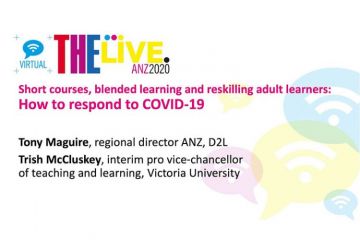Universities face a progressive blurring between initial degrees and continuing studies, an international expert has warned.
Jamil Salmi, coordinator of the World Bank's tertiary education group, last week gave a keynote address to the Association of Heads of University Administration at Strathclyde University.
The challenges of globalisation, the knowledge economy and the communications revolution heralded radical changes in training needs and new forms of competition for higher education, he said.
Universities' clientele will shift: first-time students will be a minority, more students will be pursuing a second or third degree, and most will be undertaking short-term continuing education, Professor Salmi said.
In Finland, one of the most advanced nations in adapting tertiary education to meet new demands, 150,000 young people were pursuing degrees compared with 200,000 adults taking continuing education courses.
Professor Salmi said students' desire to prepare for new types of jobs in the knowledge economy gave them an incentive to mix course options and qualifications.
He also said that new forms of competition were likely to change quality assurance systems. It was doubtful that systems for campus-based courses could be applied to online and distance-learning programmes, but the public needed reassurance that such courses met acceptable academic and professional standards, he said.
But Professor Salmi warned that institutions must not focus solely on technical change and globalisation. "It is equally vital to ensure that students are equipped with the core values necessary to live as responsible citizens in complex democratic societies. A meaningful education for the 21st century should stimulate all aspects of human intellectual potential."
Register to continue
Why register?
- Registration is free and only takes a moment
- Once registered, you can read 3 articles a month
- Sign up for our newsletter
Subscribe
Or subscribe for unlimited access to:
- Unlimited access to news, views, insights & reviews
- Digital editions
- Digital access to THE’s university and college rankings analysis
Already registered or a current subscriber?








